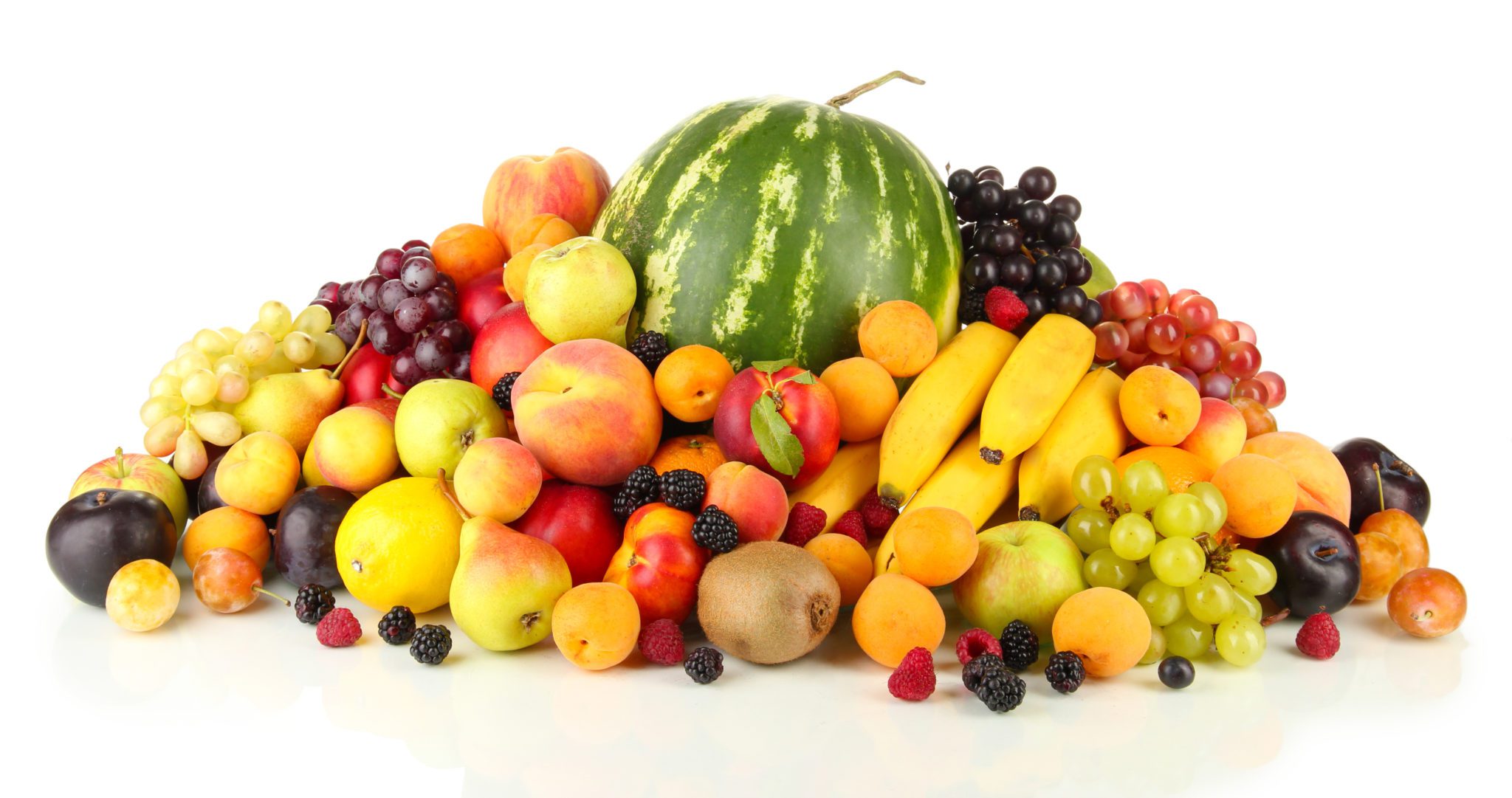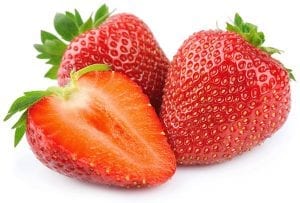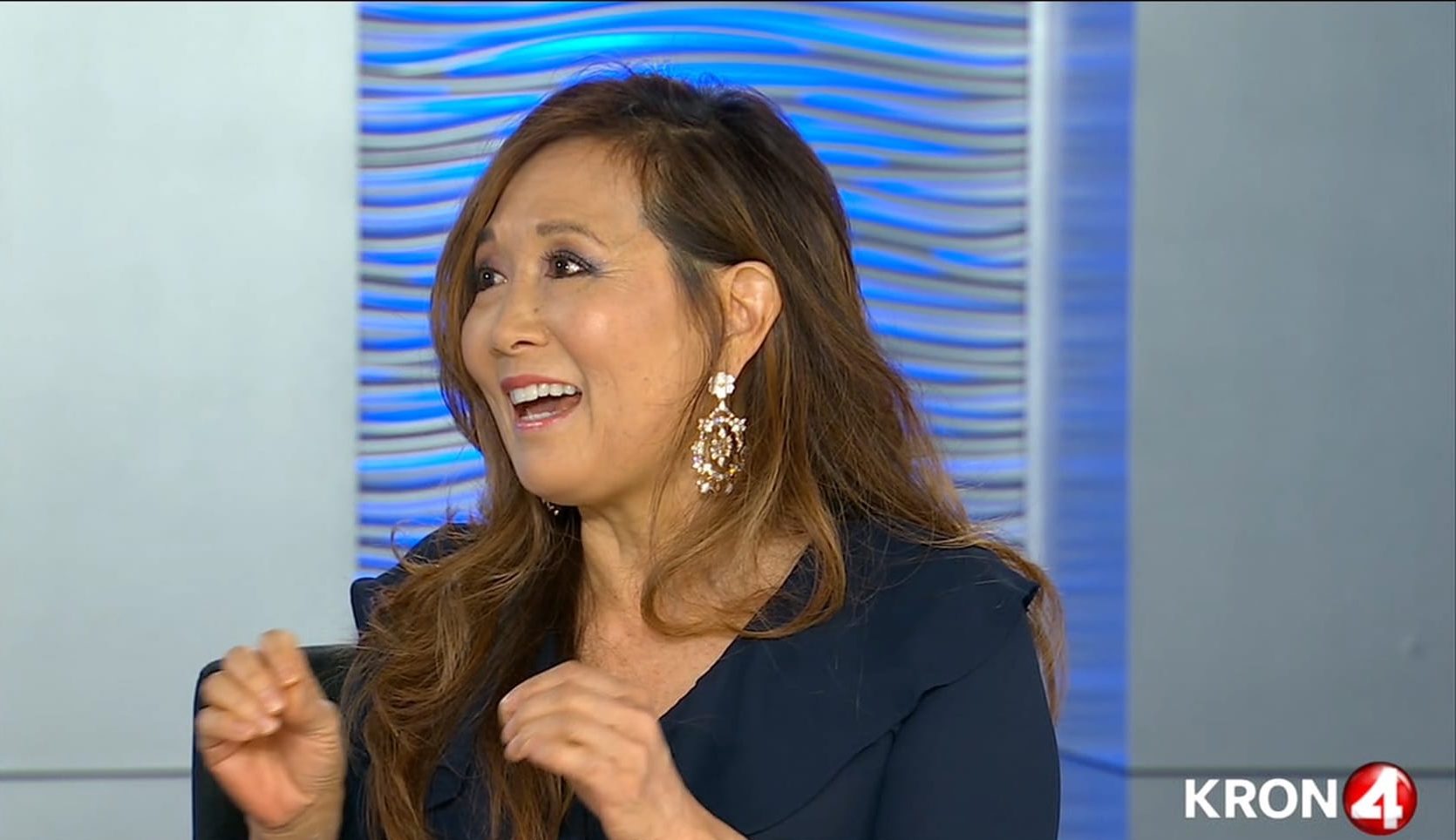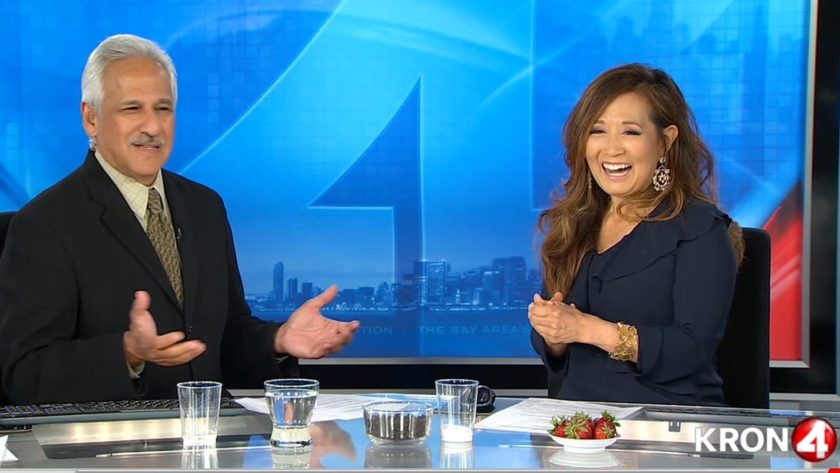How many times have you heard someone say, “I can’t eat fruit. It has too much sugar.” Are you worried about blood sugar spikes? If so, you might want to rethink your fructose fears.
Table sugar and high fructose corn syrup are known to have adverse side effects, but what about the sugar found naturally in fruit and fruit juice? Can you eat too much fruit? Today I chatted with KRON 4 Morning News Weekend anchor, Marty Gonzalez, and broke down the facts on fruit.
Fruit, Table Sugar, and High Fructose Corn Syrup — What’s the Difference?
- Table sugar and its synthetic sister, high fructose corn syrup are made up of two molecules: glucose + fructose, a.k.a. “industrial fructose”.
- Fruits contain “naturally-occurring” fructose. (Fructose is one of the three building blocks of carbohydrates.)
- Industrial fructose is linked to hypertension, belly fat, high triglycerides, and liver disease.

Is Eating Too Much Fruit (Fructose) Bad for You?
Per a University of Eastern Finland study, possible reasons that fruit and fruit juice did not spike blood sugar:
1. Fruit had a more solid consistency: Thickness in a fruit puree may slow digestion and slow sugars traveling from the intestines into the bloodstream vs. gulping down pure sugar water, e.g., soda.
2. Fruit contains soluble fiber: Soluble fiber forms a thick gel in the intestines which slows the breakdown of sugars. Fructose is bound to the fiber, so it does not absorb as quickly.
3. Fruit contains phytonutrients, also called phytochemicals: “Phyto” refers to the Greek word for plant. These chemicals help protect plants from germs, fungi, bugs, and other threats and thus, provide protection in humans.
Phytonutrients, such as polyphenols, have been shown to:
- Inhibit carbohydrate digestion
- Inhibit glucose absorption in the intestine
- Improve insulin sensitivity
Eat Berries to Slow Blood Sugar Spikes
Low-fiber starches (e.g., white bread, white pasta, white flour pretzels, instant oatmeal, corn flakes, and soda crackers) will also spike your blood sugar.
 Per another study with starches (white and rye bread) eaten with various berry combinations, the berries suppressed the blood sugar and insulin spikes.
Per another study with starches (white and rye bread) eaten with various berry combinations, the berries suppressed the blood sugar and insulin spikes.
So if you eat a starchy, low fiber food (like corn flakes, pancakes, or instant oatmeal) ON OCCASION, be sure to eat berries with them.
- Add strawberries to corn flakes
- Add blueberries to pancakes or muffins
- Add black currant berries to instant oatmeal
What Would Happen If You Ate 20 Servings of Fruit a Day for Several Weeks?
Diabetics are often wary of eating fruit because they’re afraid of the “sugar” and some health professionals recommend restricting fruit intake.
- A study of two diabetic groups showed eating at least two fruits per day vs. eating at most two fruits per day. The result? Reducing fruit intake had NO effect on diabetes or weight control.
- 20 Servings a Day of Fruit! – A study had subjects eat 20 servings of fruit/day for several weeks – about 200 grams of fructose daily which equates to 8 cans of soda.
The result? No adverse effects on weight or blood pressure or triglycerides. Bad cholesterol (LDL) dropped 38 points.
![]() Karen’s Fit Tip: Don’t be afraid to eat fruit! Be sure to get in at least 3 servings a day. A serving is one piece of fruit (e.g., a medium apple, orange, banana) or one cup.
Karen’s Fit Tip: Don’t be afraid to eat fruit! Be sure to get in at least 3 servings a day. A serving is one piece of fruit (e.g., a medium apple, orange, banana) or one cup.


